In the ever-evolving world of SUVs, two models stand out: the CUPRA Terramar and the VW ID.4. These vehicles not only embody modern innovation but also cater to distinct driver preferences. While both are popular choices within the SUV segment, they differ significantly in aspects such as powertrains, technology, and overall driving experience. This comparison aims to dissect both vehicles from technical and innovative perspectives to help prospective buyers make an informed decision.
CUPRA Terramar vs VW ID.4 - Differences and prices compared
Compare performance (272 HP vs 340 HP), boot space and price (36900 £ vs 34600 £ ) at a glance. Find out which car is the better choice for you – CUPRA Terramar or VW ID.4?
Engine Options and Performance
The CUPRA Terramar offers diverse engine options, including petrol MHEV (Mild-Hybrid Electric Vehicle) and plug-in hybrid variants. With a maximum power output of 272 HP and a torque of 400 Nm, the Terramar showcases impressive acceleration, capable of going from 0 to 100 km/h in just 5.3 seconds in its most powerful configuration. Its efficiency is commendable as well, boasting a combined fuel consumption ranging from 0.4 to 8.5 L/100km, depending on the engine choice.
On the other hand, the VW ID.4 is an all-electric SUV that delivers a power range from 170 HP to an exhilarating 340 HP (from its performance versions). The ID.4 excels with its electric torque, which can reach up to 679 Nm, enabling it to sprint from 0 to 100 km/h in as little as 5.4 seconds. Furthermore, its efficiency is reflected in its consumption rates, averaging between 15.8 and 16.8 kWh/100 km and offering an outstanding electric range of up to 572 km.
Transmission and Driving Dynamics
The CUPRA Terramar comes equipped with a sophisticated dual-clutch automatic transmission providing smooth and rapid gear changes. With options for both front-wheel drive and all-wheel drive, it offers versatility tailored to various driving conditions, making it suitable for both urban commuting and adventurous off-road outings.
Conversely, the VW ID.4 utilizes a reduction gearbox in its automatic transmission system, which is specially designed for electric vehicles. The ID.4 also features rear-wheel or all-wheel drive configurations, allowing for a balanced weight distribution and enhanced driving stability. Both models cater to driving enthusiasts, with the ability to adjust their performance settings to match the driver's mood and preferences.
Interior and Technology
Inside, the CUPRA Terramar is designed for a sporty yet comfortable experience, equipped with high-quality materials and the latest infotainment systems. With seating for up to five occupants and a trunk capacity ranging from 450 to 540 liters, it provides ample space for families or weekend getaways. Notably, the model includes a variety of innovative safety technologies and connectivity options, including a customizable digital cockpit.
In contrast, the VW ID.4 prioritizes a minimalist design and a user-friendly interface. It also seats five with a generous trunk capacity of 543 liters. The ID.4 comes packed with advanced technology such as a prominent touchscreen interface, voice control, and an array of driver assistance features. Its cutting-edge driver assistance systems contribute to a safe driving experience, further enhancing its appeal in the electric vehicle market.
Conclusion: Which SUV Reigns Supreme?
When it comes to choosing between the CUPRA Terramar and the VW ID.4, the decision ultimately hinges on personal preferences. The Terramar is an enticing option for those who desire versatile engine choices and a sporty performance, whereas the ID.4 caters to environmentally conscious drivers seeking a practical all-electric SUV.
Both vehicles demonstrate innovative engineering and captivating designs, ensuring they stand out in a crowded marketplace. As technology continues to evolve and consumer habits shift, the competition between these two giants promises to shape the future of the SUV segment.
Video - VW ID.4
Here’s where it gets real: The technical differences in detail
Costs and Efficiency:
Price and efficiency are often the first things buyers look at. Here it becomes clear which model has the long-term edge – whether at the pump, the plug, or in purchase price.
VW ID.4 has a slight advantage in terms of price – it starts at 34600 £ , while the CUPRA Terramar costs 36900 £ . That’s a price difference of around 2302 £.
As for electric range, the VW ID.4 performs clearly better – achieving up to 569 km, about 451 km more than the CUPRA Terramar.
Engine and Performance:
Under the bonnet, it becomes clear which model is tuned for sportiness and which one takes the lead when you hit the accelerator.
When it comes to engine power, the VW ID.4 has a a bit edge – offering 340 HP compared to 272 HP. That’s roughly 68 HP more horsepower.
In acceleration from 0 to 100 km/h, the VW ID.4 is minimal quicker – completing the sprint in 5.40 s, while the CUPRA Terramar takes 5.90 s. That’s about 0.50 s faster.
In terms of top speed, the CUPRA Terramar performs evident better – reaching 243 km/h, while the VW ID.4 tops out at 180 km/h. The difference is around 63 km/h.
There’s also a difference in torque: VW ID.4 pulls clearly stronger with 679 Nm compared to 400 Nm. That’s about 279 Nm difference.
Space and Everyday Use:
Beyond pure performance, interior space and usability matter most in daily life. This is where you see which car is more practical and versatile.
Both vehicles offer seating for 5 people.
In curb weight, CUPRA Terramar is clearly perceptible lighter – 1638 kg compared to 1975 kg. The difference is around 337 kg.
In terms of boot space, the VW ID.4 offers barely noticeable more room – 543 L compared to 540 L. That’s a difference of about 3 L.
When it comes to payload, VW ID.4 hardly perceptible takes the win – 551 kg compared to 542 kg. That’s a difference of about 9 kg.
Who wins the race in the data check?
The VW ID.4 is clearly superior overall in the objective data comparison.
This result only shows which model scores more points on paper – not which of the two cars feels right for you.
Costs and Consumption
View detailed analysis
Engine and Performance
View detailed analysis
Dimensions and Body
View detailed analysis
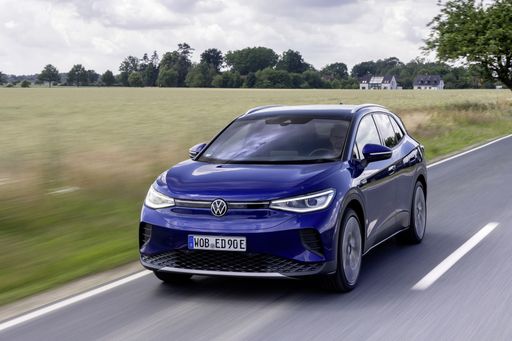
VW ID.4
CUPRA Terramar
The CUPRA Terramar is a sharply styled, sporty SUV that brings athletic handling and bold design to buyers who want performance with everyday usability. Inside, premium finishes meet driver-focused flair and family-friendly practicality, making it a tempting pick for anyone who wants thrills without turning their daily routine into a chore.
details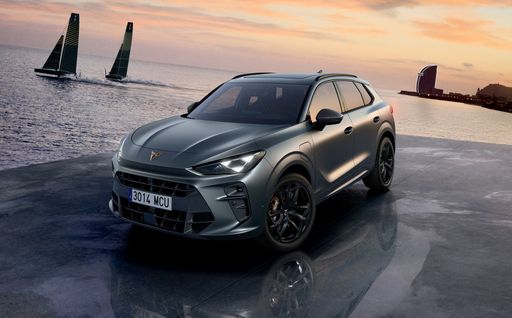
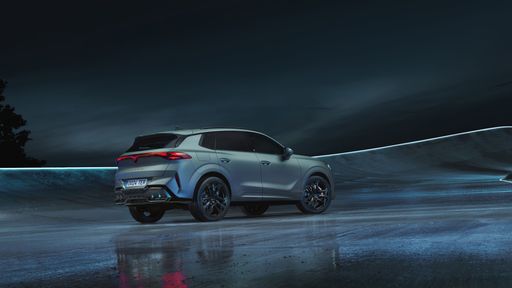
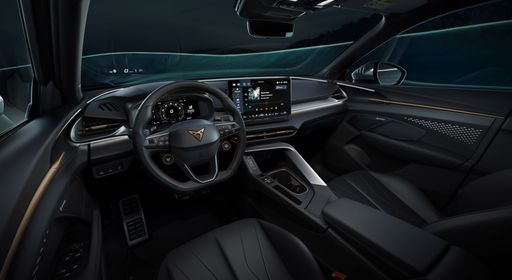
VW ID.4
The VW ID.4 is a calm, roomy electric SUV that turns everyday driving into a quietly confident experience, its practical packaging and smooth manners tailored perfectly for family life. Volkswagen's solid build and intuitive interior tech mean you get electric practicality without the sci‑fi theatrics, making the ID.4 a sensible, surprisingly likable choice for most buyers.
details
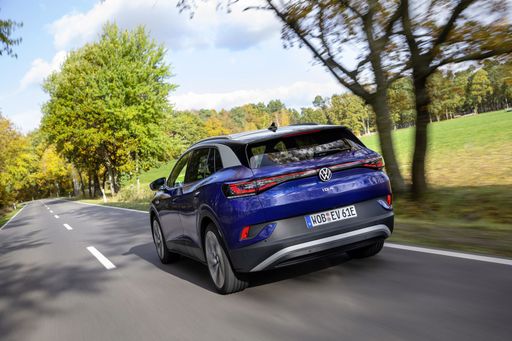
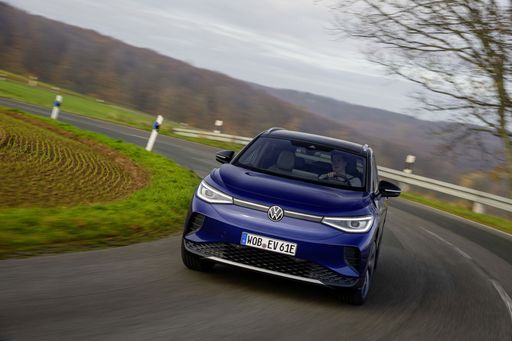
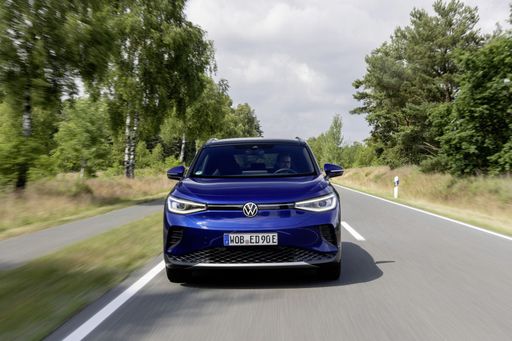
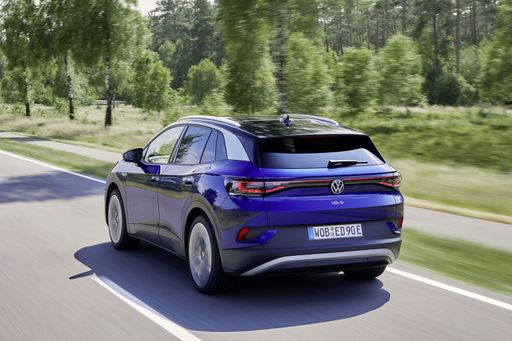

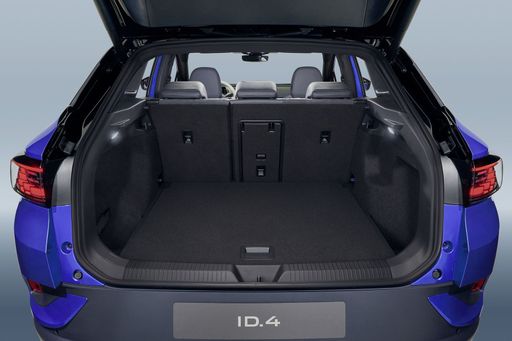
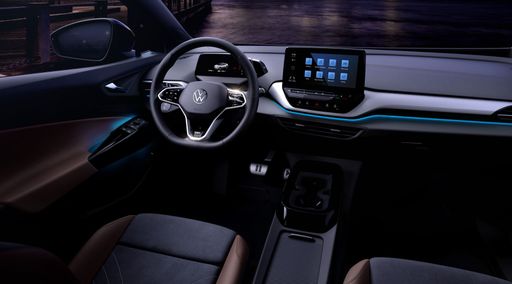
Costs and Consumption |
|
|---|---|
|
Price
36900 - 50600 £
|
Price
34600 - 47200 £
|
|
Consumption L/100km
1.6 - 8.4 L
|
Consumption L/100km
-
|
|
Consumption kWh/100km
-
|
Consumption kWh/100km
15.6 - 17 kWh
|
|
Electric Range
118 km
|
Electric Range
356 - 569 km
|
|
Battery Capacity
-
|
Battery Capacity
52 - 77 kWh
|
|
co2
36 - 191 g/km
|
co2
0 g/km
|
|
Fuel tank capacity
55 - 60 L
|
Fuel tank capacity
-
|
Dimensions and Body |
|
|---|---|
|
Body Type
SUV
|
Body Type
SUV
|
|
Seats
5
|
Seats
5
|
|
Doors
5
|
Doors
5
|
|
Curb weight
1638 - 1904 kg
|
Curb weight
1975 - 2248 kg
|
|
Trunk capacity
450 - 540 L
|
Trunk capacity
543 L
|
|
Length
4519 mm
|
Length
4582 - 4584 mm
|
|
Width
1869 mm
|
Width
1852 mm
|
|
Height
1586 mm
|
Height
1619 - 1634 mm
|
|
Max trunk capacity
-
|
Max trunk capacity
1575 L
|
|
Payload
512 - 542 kg
|
Payload
515 - 551 kg
|
Engine and Performance |
|
|---|---|
|
Engine Type
Petrol MHEV, Petrol, Plugin Hybrid
|
Engine Type
Electric
|
|
Transmission
Automatic
|
Transmission
Automatic
|
|
Transmission Detail
Dual-Clutch Automatic
|
Transmission Detail
Reduction Gearbox
|
|
Drive Type
Front-Wheel Drive, All-Wheel Drive
|
Drive Type
Rear-Wheel Drive, All-Wheel Drive
|
|
Power HP
150 - 272 HP
|
Power HP
170 - 340 HP
|
|
Acceleration 0-100km/h
5.9 - 9.3 s
|
Acceleration 0-100km/h
5.4 - 9 s
|
|
Max Speed
205 - 243 km/h
|
Max Speed
160 - 180 km/h
|
|
Torque
250 - 400 Nm
|
Torque
310 - 679 Nm
|
|
Number of Cylinders
4
|
Number of Cylinders
-
|
|
Power kW
110 - 200 kW
|
Power kW
125 - 250 kW
|
|
Engine capacity
1498 - 1984 cm3
|
Engine capacity
-
|
General |
|
|---|---|
|
Model Year
2024 - 2025
|
Model Year
2023 - 2025
|
|
CO2 Efficiency Class
E, G, F, B
|
CO2 Efficiency Class
A
|
|
Brand
CUPRA
|
Brand
VW
|
What drivetrain options does the CUPRA Terramar have?
The CUPRA Terramar is available as Front-Wheel Drive or All-Wheel Drive.




